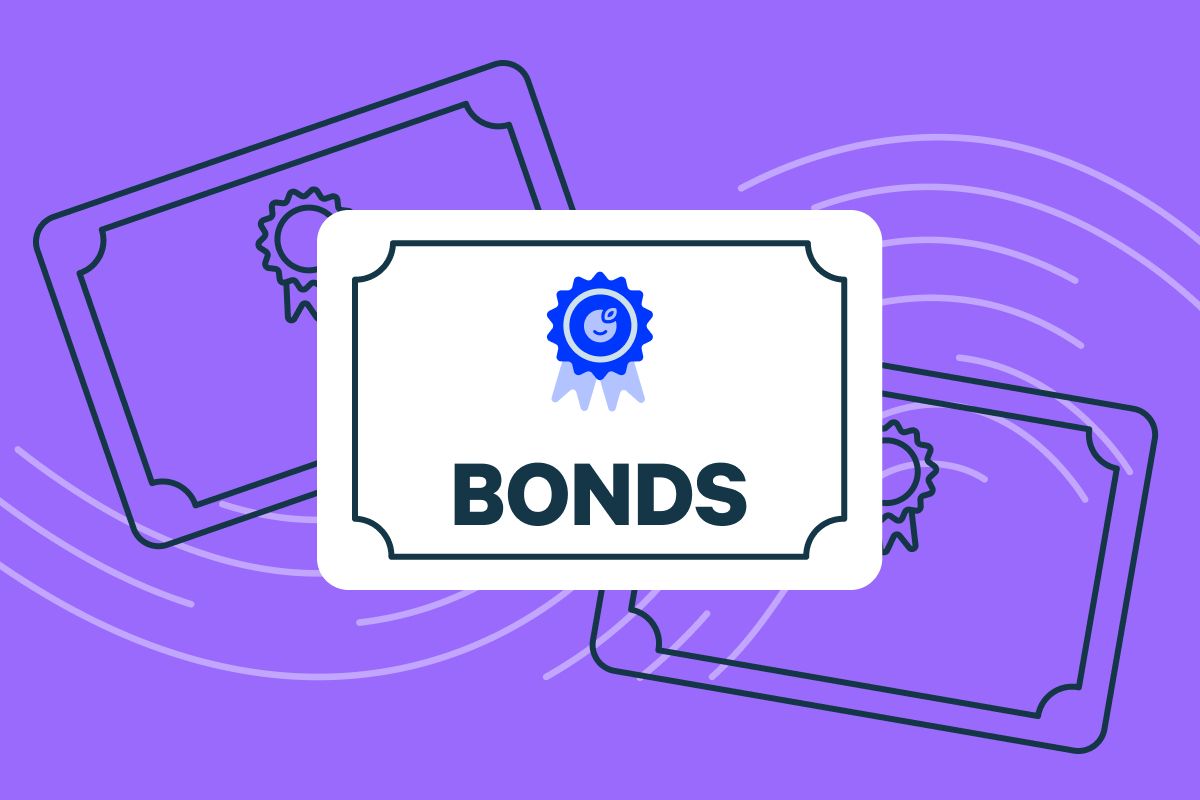A bond is really just the investment version of an IOU. When you invest in bonds, you are effectively lending money to someone (usually a government or business) 🤝 The main difference between a bond and an informal IOU is that bonds will include an agreed interest rate over a set period of time ⏱
For example, Alex and Victor's Fruit Trading company might issue £500 in bonds with an interest rate of 5% annually over 5 years. Elise then decides to invest in the bonds, all £500 worth! 🙋♀️ In exchange, Fruit Trading company pays her £25 every year, and at the end of five years also repays the original investment of £500. For her initial investment of £500, Elise receives a total of £625 🤓
What is the benefit of investing in bonds?
Bonds are considered to be less risky than stocks and shares as they are designed to give you your money back (with a specified rate of interest). With stocks and shares there is no guaranteed rate of return, and the value of your investment could go down as well as up 📉
The flip-side of this additional security is that the return is capped. Bonds are often referred to as a "fixed-interest" asset, because the interest rate paid over the period of the bond is set in advance (i.e. in our example above it is capped at 5%). If you invest in stocks and shares your returns are potentially unlimited… but they could also be -100%! 😟 That’s not to say that bonds aren’t susceptible to risk though 👇
What are the risks of investing in bonds?
Even though bonds are generally considered a safe investment, like any other form of investment there is also a level of risk. This is because not all borrowers are created equal 📊
A simple analogy for this would be applying for a credit card. The company issuing the credit card will, quite reasonably, be keen to know whether you’re able to pay back your balance. If you earn £100,000 per year and have never defaulted on a loan, chances are that you'll probably pay the loan back! 💰 Comparatively, if you earn a more modest salary and have defaulted on loans in the past... then you may be considered more of a risk ⚖️
Based on the likelihood of repayment, businesses or governments who issue bonds are given a credit rating to help investors understand the level of risk (i.e. that the issuer could default on payment) 🤷♂️ The risk of default is generally priced into the bond, usually in the form of a higher interest rate. If you decide to invest in a riskier business or government your potential return is higher, but the risk that you will not be repaid is also higher too!
When should I invest in bonds?
Bonds can be a great way of reducing the overall risk of your investment portfolio, as they can offset some potentially more risky investments, such as stocks and shares 🧐
If you invest in a managed fund, like Plum's pre-selected investment options, you’ll see that a portion of the funds will be allocated to bonds 🎚 As the risk profile decreases you will notice the amount of the fund allocated to bonds increases. However, you may also notice that as the allocation of bonds increases, the potential returns on the investment also decrease. It is often a fine balancing act trying to work out how much risk you are willing to tolerate, and what sort of returns you would like to see.
However, regardless of your investment philosophy, investing in bonds could be a great way to nullify the effects of inflation whilst attempting to minimise risk.
You can learn more about Plum, and how we can help you take your first steps into the world of investing by visiting our website.
Plum is currently available through Messenger, or an app for iOS (with an Android app also due for release in October 🤖).
Remember, your capital is at risk if you choose to invest.

